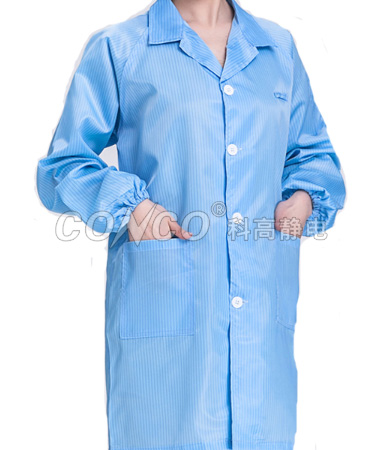

Anti-static clothing is an item widely used in clean wo […]
Anti-static clothing is an item widely used in clean workshops in various industries such as electronics, pharmacy, food, aerospace, and biological engineering. Due to the diversity of colors and specifications, the price of anti-static work clothes varies in different anti-static or clean environments. different. So how much does anti-static clothing cost? What are the advantages?
The cost of anti-static clothing on the market is not the same. Anti-static overalls are also called dust-free overalls, electrostatic clothing, sterile overalls, etc. There are many names, but they all reflect their own attributes. The principle of anti-static work clothes is very simple, that is, some special polyester filaments are used, conductive fibers are embedded in them, and they are made through a special process. Anti-static work clothes have long-lasting conductivity and are necessary protective measures for personnel to prevent static electricity in clothes handling.
Features of anti-static clothing:
1. The anti-static work clothes are produced by the silk processing technology, with excellent anti-static performance and strong durability, which can effectively release the electrostatic charge in the human body.
2. The anti-static work clothes themselves do not generate dust, have good barrier properties, high density and strength, and can effectively sterilize. Furthermore, anti-static work clothes are washable and wear-resistant.
3. The anti-static work clothes are made by fully-wrapped sewing with imported special equipment, with good dust resistance and one-time forming. Breathable anti-static and anti-static work clothes are most suitable for production and sales.
Anti-static clothing
Advantages of anti-static clothing:
1. The fabric does not emit dust
Anti-static work clothes are mainly used in clean rooms, and the clean room itself requires cleanliness, so fabrics cannot be the source of dust in the clean room. Therefore, the design of anti-static work clothes should be produced by using chemically synthesized fibers to make ultra-clean fabrics. Natural fibers such as cotton, hemp, and silk are short fibers. Although they make the fabric more usable, they are not like chemically synthesized long fibers, so they cannot be used in ultra-clean fabrics. Even chemical fiber filaments undergo strict control tests when controlling the amount of dust. Generally speaking, it is not appropriate to use fully matted polyester filaments to produce anti-static ultra-clean fabrics, because the matting agent added in polyester production will also become a source of pollution.
2. The fabric has dust filter
The dust in the clean room is mainly from the air flowing in the room and people moving. Therefore, after the equipment conditions are determined, improving the cleanliness of the dust-proof clothing requires that the fine dust produced by the human body be placed in the anti-static work clothing to the greatest extent, so as to prevent it from passing through the fabric and reaching the air. This is to improve the dust filter of the fabric. However, improving the dust filterability of the fabric will inevitably sacrifice the breathability of the fabric. Therefore, knitted fabrics and loose woven fabrics are not suitable for use in clean rooms.
It is also because the fabrics of anti-static clothing are different, that is why the price of anti-static work clothes is also different. When choosing, you should choose the right one according to your needs.
